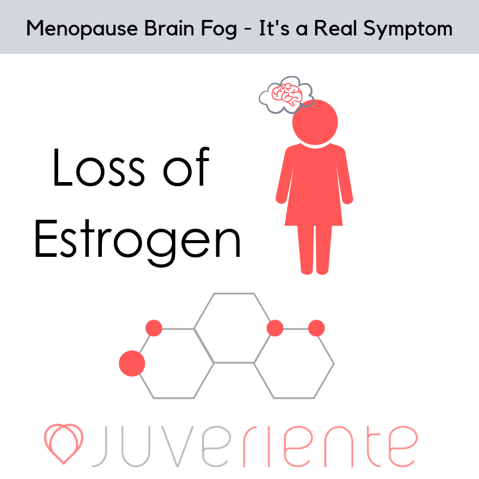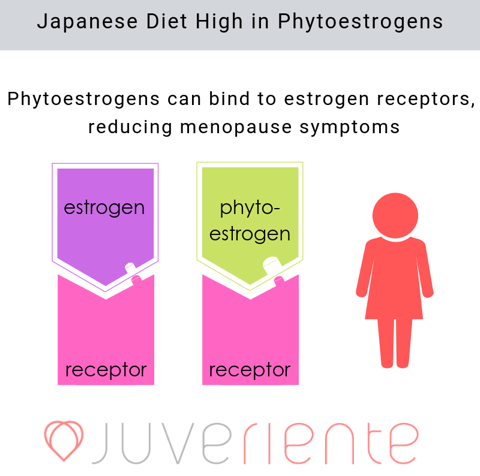Fuzzy Thinking and Menopause. Don’t panic if you begin to forget things.®Juveriente's Blog
- A Juveriente Blog Writer

- Jan 10, 2019
- 4 min read
Updated: Jun 6, 2019

You would think that in this age of medical breakthroughs, the mapping of the human genome and custom bio-engineering of drugs, that we know everything we can do about the menopause. But we are still very early on in our understanding of the triggers, symptoms and side effects of transitioning through this important stage in every woman’s life.
Let’s take for example two recent cases of women in their early fifties who went to see their doctors with confusion, memory-loss and in one case the inability to retain new information. One patient was given the initial diagnoses of Alzheimer’s Disease (AD) and the second patient a diagnosis of Frontotemporal Dementia (FD).

The patients were then referred to Dr Gayatri Devi, of the Department of Neurology, SUNY Downstate Medical Center of New York, who subsequently wrote up the cases in the journal of Obstetrics and Gynecology. As a first step, Dr Devi initiated the standard battery of neurocognitive tests, brain scans and all the women’s original tests were reviewed. Dr Devi found no evidence of AD or FD in either women. However, having noted that the women had recently gone through the menopause, Dr Devi performed more tests and finally concluded that both women’s symptoms had become more pronounced over the last 12 months.
The result? Dr Devi diagnosed the women with cognitive impairment brought on by reduced hormone levels from the menopause. Dr Devi’s treatment was to prescribe hormone replacement therapy (HRT) for the women. Both women improved, with their symptoms having vanished within a year and a half.

It’s startling that these women had to go through months of uncertainty, stress and the worry that goes with a dementia diagnosis, only to be told that it is part of a natural process and that HRT could potentially stop and reverse their symptoms.
There are lots of articles on the symptoms on menopausal fuzzy thinking. My friends call these symptoms brain fog. Not a very scientific term but for them, it’s an accurate description of what it feels like. Knowing you know the answer to something but unable to get your brain to bring it into focus.
It is one of those things that woman all over the world talk about. Most women come through the menopause having experienced some level of brain fog. The culprit is likely to be the drop in the estrogen levels and the brain adjusting to the new normal. For the majority of women, it is a temporary setback lasting months or a few years, but for a smaller number the effects can be longer lasting and even permanent.
It is thought that the falling estrogen levels that accompany the menopause, effect the ability of neurotransmitters in the brain to operate optimally. Brain fog or fuzzy thinking are reported and are recognized symptoms of menopause.
What can you do if you start to forget things or have brain fog?
Well firstly, don’t panic. What tends to happen is that as we age, any forgetfulness we experience, we start to put it down as a senior moment. However, it is more likely that as you get older you have more responsibilities; such as caring for your own family, or parents, or both. You may have more responsibility at work. With more bits of information in your head fighting for attention, then the chances of appointments being forgotten or keys getting misplaced, increase. So, give yourself a break and stop looking for reasons to worry.
Secondly, choose your primary care physician carefully. Having your gynecologist as your regular doctor can have benefits, as they are more aware of the current research that is going on with menopausal symptoms and their causes.
Regular general doctors in your primary care clinic, are typically more aware of early onset dementia than cognitive-impairment brought on by the menopause. As the symptoms can appear similar, it is not uncommon for your regular doctor to insist on further testing for dementia and related neuropathic illnesses. By you just raising the question “Could it be linked to my menopause?” your busy doctor will pause for thought.
Thirdly, take some form of action.
Your primary care physician may prescribe HRT which is a proven method to offset these symptoms.

There are also plant phytoestrogens available, that are natural and work in a similar way to estrogen. Phytoestrogens are close enough to estrogen in chemical makeup, to be able to bind onto estrogen receptors (see above graphic). As an example of the versatility of phytoestrogens, it is reported that Japanese women suffer far fewer menopausal symptoms that their counterparts in the West. These natural compounds are readily available in the Japanese diet. Those of us outside of Japan, can use phytoestrogen supplements to gain those benefits.
To sum up, brain fog or fuzzy thinking is common during the menopause. It is more than likely a short-term side effect and one that you can do something about. If you are still worried about Alzheimer’s and the link to the menopause, then take a read of our related article here
Are you worried about menopause foggy brain symptoms? Do you want to overcome your brain fog depression? Don't worry, you're on right platform because ®Juveriente recommend you the best supplements for menopause brain fog. Buy on amazon Today!








Comments